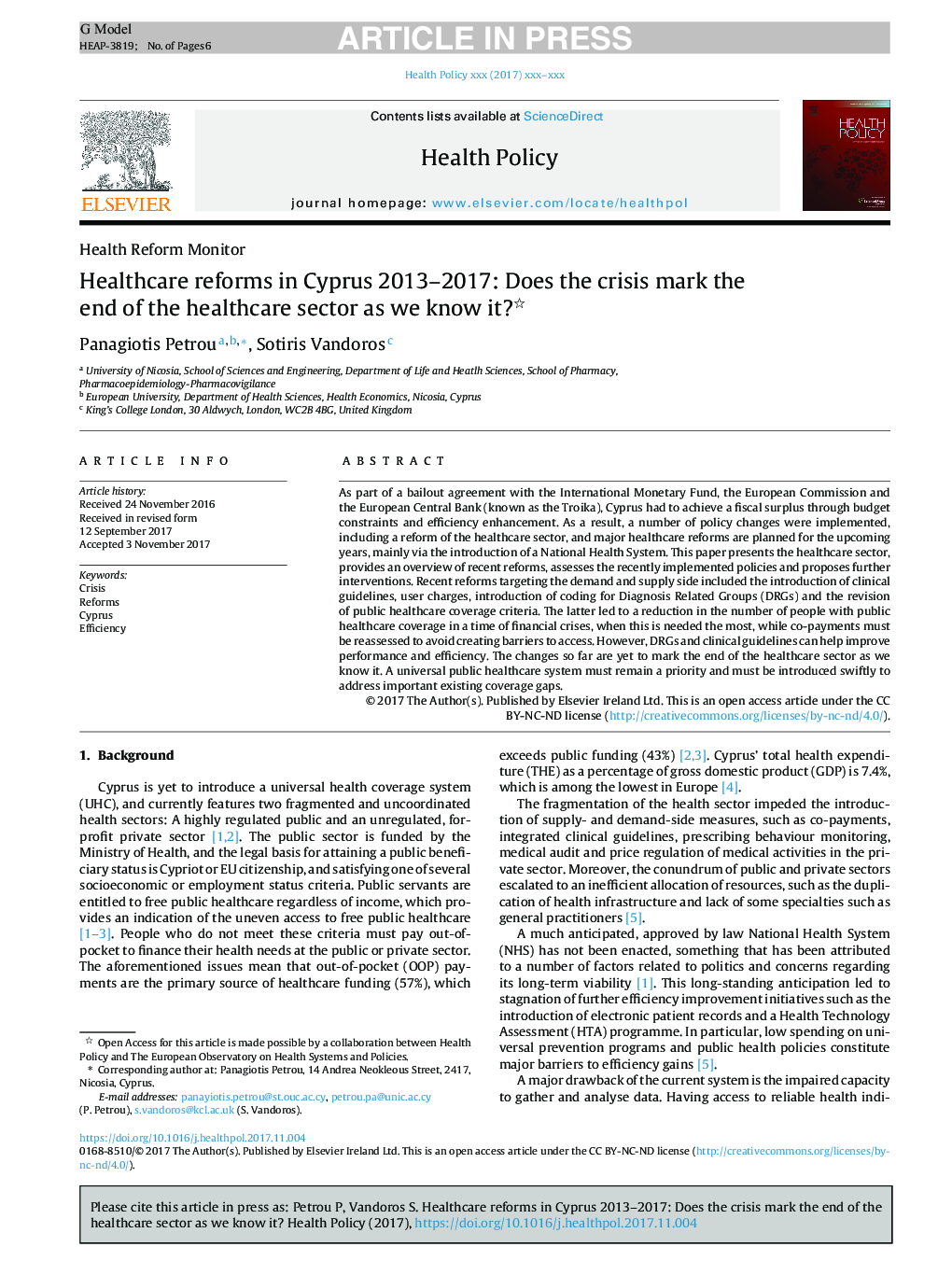| Article ID | Journal | Published Year | Pages | File Type |
|---|---|---|---|---|
| 8817997 | Health Policy | 2018 | 6 Pages |
Abstract
As part of a bailout agreement with the International Monetary Fund, the European Commission and the European Central Bank (known as the Troika), Cyprus had to achieve a fiscal surplus through budget constraints and efficiency enhancement. As a result, a number of policy changes were implemented, including a reform of the healthcare sector, and major healthcare reforms are planned for the upcoming years, mainly via the introduction of a National Health System. This paper presents the healthcare sector, provides an overview of recent reforms, assesses the recently implemented policies and proposes further interventions. Recent reforms targeting the demand and supply side included the introduction of clinical guidelines, user charges, introduction of coding for Diagnosis Related Groups (DRGs) and the revision of public healthcare coverage criteria. The latter led to a reduction in the number of people with public healthcare coverage in a time of financial crises, when this is needed the most, while co-payments must be reassessed to avoid creating barriers to access. However, DRGs and clinical guidelines can help improve performance and efficiency. The changes so far are yet to mark the end of the healthcare sector as we know it. A universal public healthcare system must remain a priority and must be introduced swiftly to address important existing coverage gaps.
Keywords
Related Topics
Health Sciences
Medicine and Dentistry
Public Health and Health Policy
Authors
Panagiotis Petrou, Sotiris Vandoros,
